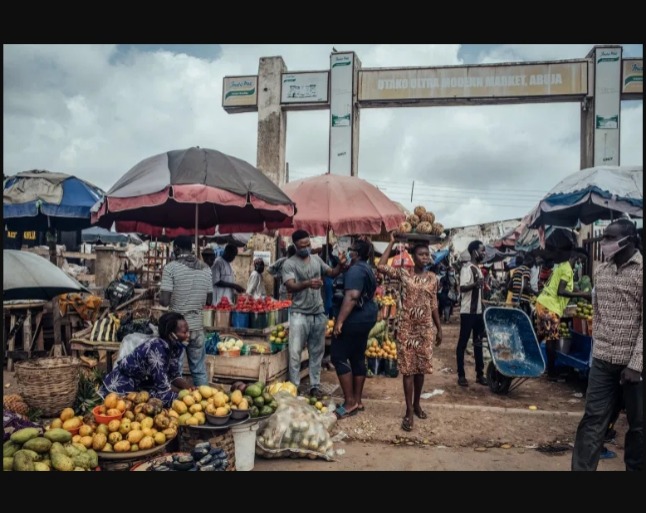Food insecurity threatens an estimated 4.4 million people, 775,000 of whom are at extreme risk.
Amina Adamo, 25, is only too familiar with hunger; she has lived without food for days and with only very small rations for months at a time.
Inside her makeshift shelter at the Elmiskin internally displaced persons (IDP) camp in Jere, near Maiduguri, Borno State, she is one of the many people affected by food insecurity.
Amina fears hunger.
She relied on food assistance for almost five years, up until it was cut off three months ago.
The only food assistance available in the camp was meant for pregnant and breastfeeding mothers.
IDPs like Amina count on humanitarian assistance as their only lifeline. The ongoing conflict and rising attacks on humanitarians who are delivering aid to communities like hers have made life more difficult and hinder the provisions sent to families who need them most.
Amina’s journey to camp
Five years ago, Amina and her husband fled Bama, a garrison town near the Cameroon border, following an attack by non-State armed groups (NSAGs).
The groups’ violent campaign has pushed approximately 8.7 million people from their homes in various communities in Borno, Adamawa and Yobe – the states most affected by conflict in the region.
Zara Bulama is a mother of 8 children who fled from the conflict in Monguno. She lost her husband to the conflict and walked 3-4 days till she got to her relative’s house in Gongulong. She and her family have lived with the relative ever since.
She had no means of livelihood and depended only on her relative. In September 2020, FAO gave her four goats to care for as livestocks.
“I am very happy I now have something to do that could yield something for me to.”
The FAO supports activities focused on providing technical assistance and policy advice for the development of crops, livestock, fisheries and forestry sub sectors, with due emphasis given to institutional capacity building and development of local skills and expertise to ensure sustainability in camps and local communities in states across NigeriaPhoto: UNOCHA/Damilola Onafuwa.
READ ALSO: Abducted Nigerian Students Reach 950 Since Dec 2020 – UNICEF
Zara Bulama is a mother of 8 children who fled from the conflict in Monguno. She lost her husband to the conflict and walked 3-4 days till she got to her relative’s house in Gongulong.
She and her family have lived with the relative ever since. She had no means of livelihood and depended only on her relative. In September 2020, FAO gave her four goats to care for as livestocks.
“I am very happy I now have something to do that could yield something for me to.”
The FAO supports activities focused on providing technical assistance and policy advice for the development of crops, livestock, fisheries and forestry sub sectors, with due emphasis given to institutional capacity building and development of local skills and expertise to ensure sustainability in camps and local communities in states across NigeriaPhoto: UNOCHA/Damilola Onafuwa














